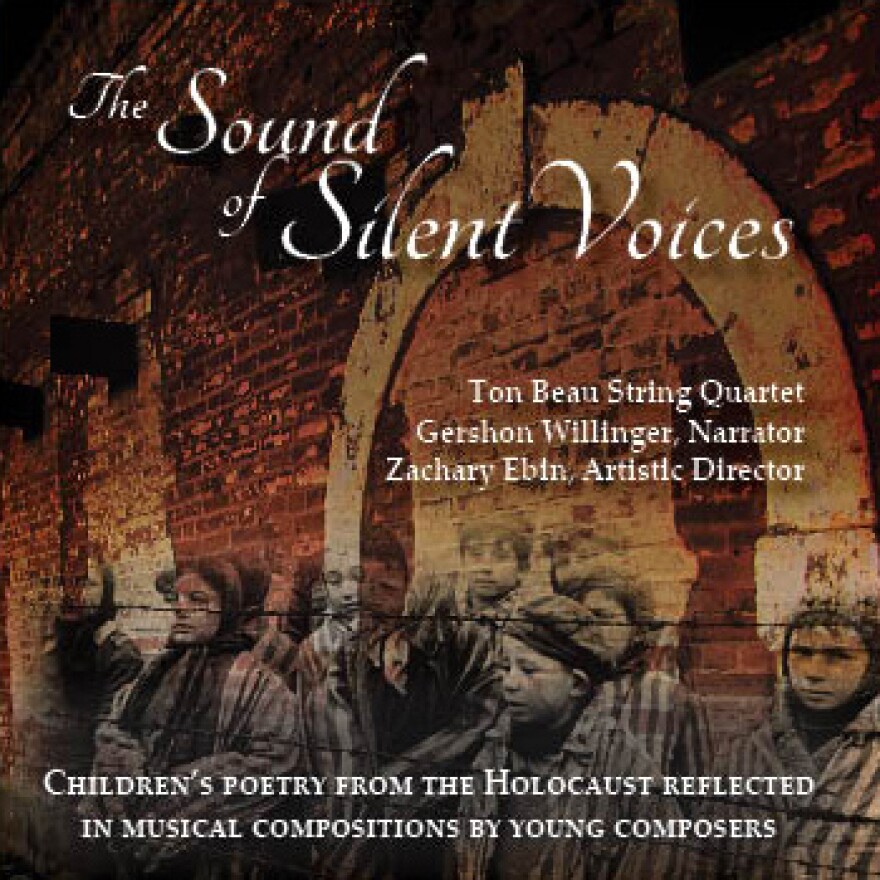It’s a fact both horrifying and sobering: an estimated 1.5 million children perished in the Holocaust.
But those voices long silenced now ring on, thanks to the Silent Voices Project. In that project, 16-year-old Mansfield composer Liam Cummins and other young composers wrote new musical works inspired by the poetry of young people who died in the Holocaust.
Cummins was 12 when his composition teacher at the Cleveland Institute of Music, Dr. Jennifer Connor, told him about the Silent Voices Project. Cummins says he knew right away that he had to be part of it.

“I was just totally awestruck by the profound idea of this initiative,” Cummins said in a recent phone interview. “As a 12-year-old, it was very striking to be writing music inspired by this poetry of children about my age, who were persecuted simply for being who they were.”
Now, Cummins’ work The Butterfly for string quartet has been recorded by Toronto’s Ton Beau String Quartet on the Silent Voices Project's recording, The Sound of Silent Voices.
Zachary Ebin, director of the Suzuki Program at Vanderbilt University’s Blair School of Music, says he was inspired to create the Silent Voices Project after reading And I Never Saw Another Butterfly, an anthology of poems and drawings created by children while interned at Terezin Concentration Camp, near Prague.
“I just thought it would be really cool to try to revive these children’s voices, which were silenced by the Nazis, through young children,” Ebin said. “And since I’m a music educator, the way I thought to do that was to have children write musical works based on these poems.”
Ebin asked each of the composers in the Silent Voices Project to select a poem from I Never Saw Another Butterfly as the basis for a new musical work. Cummins says the poem “The Butterfly” by Czech poet Pavel Friedmann, who perished at Auschwitz Concentration Camp in 1944, resonated with him.
“I was immediately struck by the way Friedman crafted the language in the poem and used it to convey such profound meaning,” said Cummins. “He painted a vivid picture of an incredibly disturbing reality, but also managed to somehow find beauty even amid these horrors.”
Images of light and darkness in Friedmann’s poem create a haunting chiaroscuro of imprisonment and imagined freedom. The “richly, brightly, dazzlingly yellow” wings of a butterfly float high above what Friedmann calls “the ghetto” where, he writes, “I have found what I love” – the dandelions and the white branches of a chestnut tree.
The poem ends with a devastating observation: “That butterfly was the last one. Butterflies don’t live here, in the ghetto.”
“When I first read the poem,” Cummins said, “I remember thinking, this piece is writing itself.”
Cummins says composing The Butterfly was a life-changing experience.
“The impact on my musical life has been profound because this project and this experience taught me about conveying meaning through music,” said Cummins. “And it was a very formative experience as a composer and as an artist, and that influences every work I have ever written afterwards.”
Cummins’ more recent works include his Fanfare for Found Objects, which he composed at home last summer during the coronavirus pandemic.
Liam Cummins performs his Fanfare for Found Objects (2020):
https://www.youtube.com/watch?v=mSx9Ii5T3Vk
Cummins wrote his Fanfare to Uncertain Times for Cleveland’s Contemporary Youth Orchestra, which performed the work virtually last fall.
Liam Cummins’ Fanfare to Uncertain Times (2020) performed by the Contemporary Youth Orchestra:
https://www.youtube.com/watch?v=3DbJqZT9DAg
As the pandemic wears on, Cummins has been able to spend more time at home composing. He says he aims to write as much music as he can and in the most meaningful way possible – but not for his own sake. Composing The Butterfly for the Silent Voices Project, Cummins says, taught him that writing music isn’t about him, but instead is about the people his music moves and honors.
“The Silent Voices project taught me a lot about humility as a composer and the need to be humble,” Cummins said. “I think most often as a composer, no matter in what respect, you are not the center of attention. This is not a project that is done for me. It’s done for Pavel Friedmann, it’s done for the victims of the Holocaust, it’s done for their legacy.”
Liam Cummins’ The Butterfly airs on The American Sound 6 p.m. Saturday and 7 p.m. Tuesday on Classical 101.



